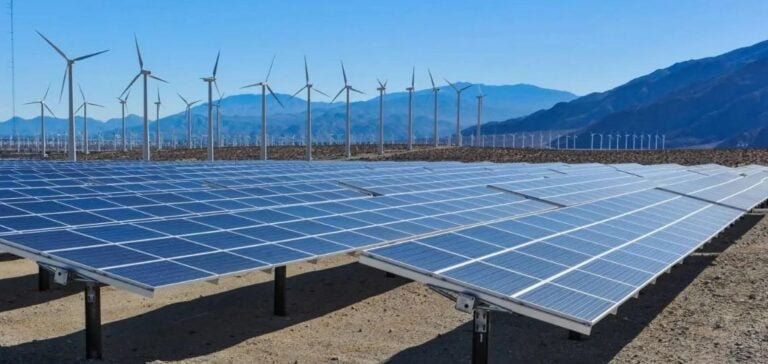The recent auction for the right of access to the South West Renewable Energy Zone (REZ) in New South Wales (NSW), Australia, highlights the market’s growing commitment to renewable energy.
The auction, which represents the fifth in NSW’s Electricity Infrastructure Roadmap, attracted bids totalling over 15 GW of renewable energy generation and storage capacity.
This figure is almost four times higher than the indicative target of 3.98 GW, illustrating the strong interest in developing renewable energy projects. in the region.
Details of the auction and the South West REZ
The South West REZ auction attracted hybrid projects that combine solar and wind technologies with energy storage systems.
In addition, long-term energy storage (LDES) infrastructure was also on offer, with bids that doubled the initial target of 1 GW.
This level of commitment testifies to substantial market interest in these innovative technologies.
The South West REZ, located around Hay, is set to receive up to AUD 2.8 billion (USD 1.87 billion) of private investment by the end of the decade, reinforcing its strategic role in Australia’s energy transition. New South Wales has already secured around 5.79 GW of its legislated target of 12 GW of renewable energy capacity.
At the same time, 574 MW have been secured towards the 2 GW target for long-term storage capacity.
Recently selected projects include one solar, one wind and three energy storage projects, including two lithium-ion battery storage systems and one advanced compressed air energy storage system.
These initiatives represent an investment of AUD 4.2 billion by the private sector, with significant economic benefits, including the creation of around 1,000 jobs and AUD 40 million for First Nations initiatives in local communities.
Role of AEMO Services and the NSW Electricity Infrastructure Roadmap
AEMO Services plays a crucial role as NSW’s consumer trustee, managing the roadmap auctions for long-term energy services agreements (LTESA) and REZ access rights.
These auctions are designed to encourage investment in renewable energy generation, long-term storage and stabilization infrastructure.
AEMO Services’ ten-year plan calls for biannual auctions, enabling project developers to participate in the process when they are ready to submit bids, thus fostering a dynamic of innovation and competitiveness in the market.
Auctions aim to secure a reliable and affordable energy system, while facilitating the transition to renewable energies.
At the same time, they ensure economic benefits for regional communities.
Projects financed and developed under these auctions will offer significant benefits, including local employment and support for local supply chains.
The South West REZ could support over 2,000 jobs during the construction period, contributing to the economic revitalization of the region.
Objectives and economic impact
The objectives of this initiative are clear: to secure a sustainable energy supply while maximizing the economic benefits for local communities.
The renewable energy and storage projects that emerge from this auction are designed to meet growing energy demand while minimizing environmental impact.
By integrating advanced technologies, these projects aim to establish an energy model that is more resilient and adaptable to future needs.
The economic impact of these projects is not limited to job creation.
They are also likely to stimulate innovation in the renewable energy sector, attracting additional investment and strengthening local capacities.
By promoting the development of energy storage technologies, the South West REZ is positioning itself as a key player in Australia’s energy transition, while supporting initiatives that benefit local communities.
Future prospects
The results of this auction underline the growing importance of renewable energies in Australia’s energy mix.
With significant investment and a keen interest in storage technologies, the South West REZ could become a model for other regions looking to develop similar infrastructure.
The resulting projects are not only essential to achieving decarbonization targets, but also represent an opportunity for sustainable economic growth.
In sum, the South West REZ auction illustrates an important milestone in New South Wales’ energy transition.
The resulting projects have the potential to transform the region’s energy landscape, while bringing tangible benefits to local communities.
The commitment of the market and the planned investments demonstrate a collective desire to build a more sustainable and resilient energy future.






















